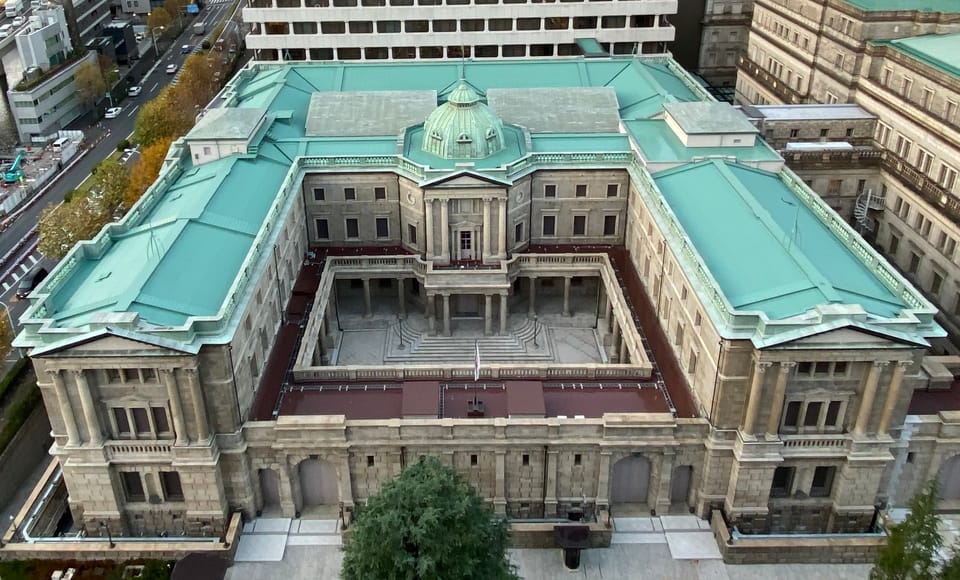BOJ Expected to Hold Rates Steady, Weigh Risks of Trump's Trade War

Sign up for Global Macro Playbook: Stay ahead of the curve on global macro trends.
The Bank of Japan (BOJ) is expected to keep interest rates unchanged at its upcoming policy meeting next week, as policymakers grapple with the growing economic risks posed by U.S. President Donald Trump's escalating trade war, specifically his recent imposition of 25% tariffs on steel and aluminum. While Japan's domestic economy shows signs of strength, the darkening global outlook, fueled by Trump's protectionist policies, is casting a shadow over the BOJ's path toward further monetary policy normalization.
The BOJ, which raised its short-term policy rate to 0.5% in January after ending a massive stimulus program, is widely anticipated to maintain that rate at the conclusion of its two-day meeting on Wednesday. The central bank's decision comes amid a backdrop of heightened global trade tensions, triggered by Trump's imposition of a 25% tariff on all steel and aluminum imports. These tariffs, which have no exemptions for allies, have already sparked retaliatory measures from the European Union and Canada, raising fears of a full-blown trade war and a potential U.S. recession.
Positive domestic data in Japan, including a third consecutive year of substantial pay increases in recent wage negotiations and headline inflation reaching a two-year high of 4% in January, are being overshadowed by a global market rout and concerns about a slowdown. This makes it likely the BOJ will delay its next interest rate hike until mid-year, as it assesses the full impact of the evolving economic landscape.
Kazuo Momma, former executive director at the BOJ, highlighted this cautious approach in a recent Bloomberg interview, stating that June is his "favored option" for a rate increase, but that it "may get pushed back to September or later" depending on economic and financial market conditions.
The uncertainty surrounding the global economy, particularly the potential impact on Japan's export-reliant businesses, continues to be a major concern for the BOJ. Governor Kazuo Ueda, who will hold a press conference after the policy decision, has expressed worries about overseas economic developments.
"Japan's economy and price developments appear on track, but overseas risks have risen," a source familiar with the BOJ's thinking told Reuters. "The heightening global uncertainty is a concern and could affect the BOJ's rate-hike timing."
Market participants will be closely watching Ueda's remarks for any hints about the timing and pace of future rate hikes. While some economists anticipate a move to 0.75% in the third quarter, likely in July, the BOJ is expected to proceed cautiously. Former BOJ official Kazuo Momma suggests a pace of one hike every six months is likely, but given the expected national election, a July hike is unlikely. He names June as his "favored option," but that it "may get pushed back to September or later" depending on economic and financial market conditions.
The BOJ is also monitoring the bond market, where yields have risen to their highest levels since 2008. Governor Ueda has indicated that the bank is relatively unconcerned about the rise, attributing it to market expectations regarding the economy, inflation, and interest rates overseas. However, he assured that the BOJ would act swiftly if yields rose sharply in a way that deviated from normal market movements.
Adding to the complexity, the yen has recently strengthened, a development likely welcomed by the Japanese government and the BOJ, despite Trump's recent warning against currency manipulation.
The BOJ's next quarterly review of its growth and price forecasts is scheduled for its April 30-May 1 meeting, which will include projections extending to fiscal 2027.